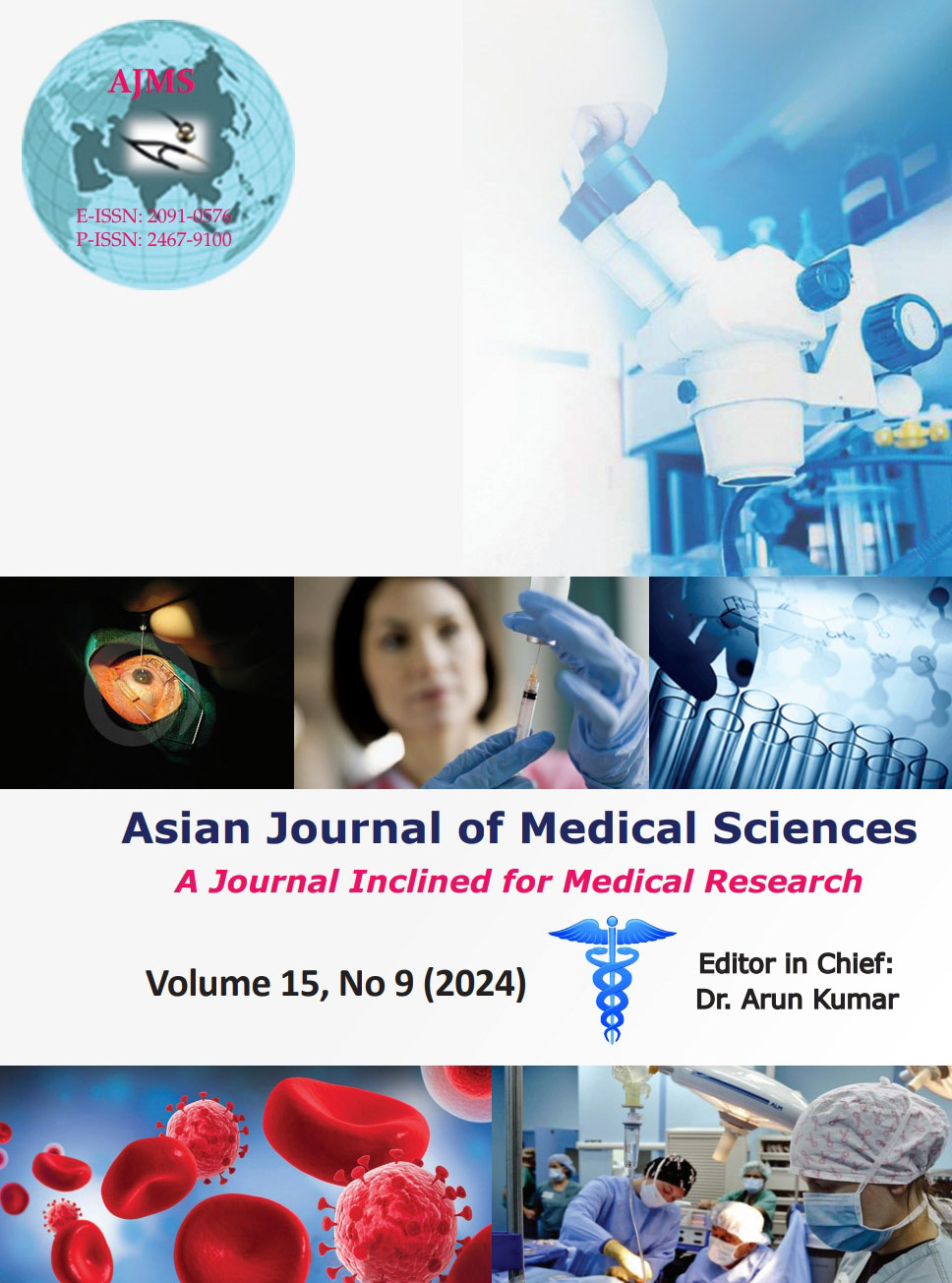Effect of neoadjuvant chemotherapy on the expression of hormone receptors and Ki-67 in patients with locally advanced breast cancer
Keywords:
Breast cancer; Locally advanced; Neoadjuvant chemotherapy; Hormone receptors; Ki-67Abstract
Background: Neoadjuvant chemotherapy (NACT) affects the tumor protein marker’s expression and status. Changes in the expression of biomarkers during NACT may influence the clinical decision of adjuvant molecular and hormonal therapy. Hence, re-evaluation of receptor status has to be done after NACT to give a specific adjuvant therapy for patient benefit.
Aims and Objectives: The aim of this study was to study the status of hormone receptors (HRs) – estrogen receptor (ER), progesterone receptor (PR), human epidermal growth factor receptor (Her-2/Neu), and Ki-67 in patients with locally advanced breast cancer (LABC) in both core needle biopsies and post-mastectomy specimens after administering neoadjuvant chemotherapy.
Materials and Methods: The present study was conducted in the Department of Pathology in collaboration with the Department of Surgery, Pt B D Sharma PGIMS, Rohtak, for a period of 1 year. The study comprised 52 patients with LABC who received neoadjuvant chemotherapy and 20 control cases who did not receive neoadjuvant chemotherapy. Each case comprised two specimens: Trucut biopsy and a mastectomy specimen.
Results: ER changed from positive to negative in 15.4% of the cases and from negative to positive in 1.9% of the cases. The overall change in ER was statistically significant (P=0.020). For PR, 9.6% of the cases changed from positive to negative while none of the cases showed change from negative to positive. The overall change in PR was statistically significant (P=0.025). For HER2/Neu, 19.2% of the cases changed from positive to negative, and 11.5% of the cases changed from negative to positive. The overall change in HER2/Neu was not statistically significant (P=0.317). For Ki-67, 30% of patients changed from positive to negative while 11.5% of patients changed from negative to positive. The overall change in Ki-67 was statistically significant (P=0.024).
Conclusion: There was discordance in the HR status and proliferation marker after NACT in patients with breast cancer. The administration of NACT might be the main reason for the change in receptor status thus understanding the chemotherapy-induced biological conversion in the tumor cell behavior is strategically important in planning adjuvant endocrine therapy and for disease follow-up.
Downloads
Downloads
Published
How to Cite
Issue
Section
License
Copyright (c) 2024 Asian Journal of Medical Sciences

This work is licensed under a Creative Commons Attribution-NonCommercial 4.0 International License.
Authors who publish with this journal agree to the following terms:
- The journal holds copyright and publishes the work under a Creative Commons CC-BY-NC license that permits use, distribution and reprduction in any medium, provided the original work is properly cited and is not used for commercial purposes. The journal should be recognised as the original publisher of this work.
- Authors are able to enter into separate, additional contractual arrangements for the non-exclusive distribution of the journal's published version of the work (e.g., post it to an institutional repository or publish it in a book), with an acknowledgement of its initial publication in this journal.
- Authors are permitted and encouraged to post their work online (e.g., in institutional repositories or on their website) prior to and during the submission process, as it can lead to productive exchanges, as well as earlier and greater citation of published work (See The Effect of Open Access).




